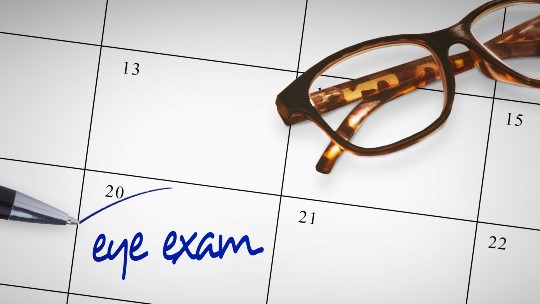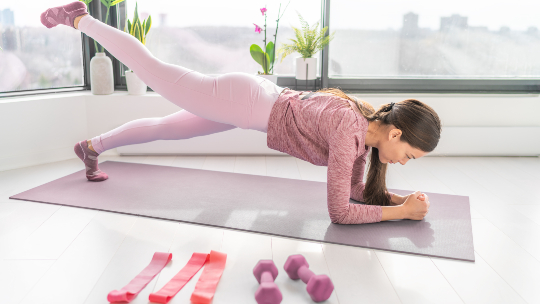Taking care of your eyes and seeing your eye doctor annually are just as important as regular checkups with your primary care provider and dentist. However, according to the American Academy of Ophthalmology, only half the people in the U.S. see an eye care professional regularly. Good vision is vital to doing well in school or at work. Eye health is also an indicator of overall health -- deteriorating vision can be an early sign of other health issues.
In observance of National Eye Exam Month, we asked optometrist Stuart Machida, D.O., why regular vision exams are so important, which warning signs you shouldn’t ignore, and how to improve eye health.
Why are annual eye exams so important?
Annual exams are important because it gives your eye doctor the opportunity to check your vision and the health of your eyes. Seeing clearly helps you perform well at work or school. If you can’t see well, you may not be able to function to the best of your ability.

Do I need to see an eye doctor even if can see OK and don’t have any problems?
Yes! Even if you can see well, your could have an eye problem and not even know it. An eye exam isn’t just about reading an eye chart. We also check for underlying eye diseases. Diabetes is a big one where we find some patients have diabetic retinopathy. Though it may not cause any notable symptoms, if untreated, it can affect the blood vessels in the retina and cause loss of vision or blindness. It’s best to catch it early and address it before it becomes a problem.
The Centers for Disease Control and Prevention estimates that 11 million Americans over the age of 12 need vision correction. So it’s likely that your vision could be improved and you don’t even realize it.
How can those who work on computers all day and are on their phones in the evening reduce eye strain?
If you use a computer for work, it’s important to take breaks. To help reduce eye strain, remember the 20-20-20 rule: for every 20 minutes you look at a screen, look at something 20 feet away for 20 seconds.
If you feel like your eyes are dry or tired, you can use artificial tears. Preservative-free eye drops are recommended since as the name suggests, they don’t contain any preservatives and you can use them as often as you want. However, they have a shorter shelf life than eye drops with preservatives.
Another way to reduce eye strain is to go to sleep earlier. When you stay up, you’re probably using your eyes, whether you’re watching TV or on your phone. Plus, sleep helps moisturize and lubricate the eyes and clear irritants such as dust or allergens.
Finally, keep hydrated. Our eyes need water to stay lubricated. Lubrication keeps eyes moist and removes bacteria and dust particles.
How about computer glasses? Do they really work?
The answer is more complicated that you may think. The American Academy of Ophthalmology doesn’t recommend blue-light glasses because of the lack of evidence that blue light is damaging to eyes. However, there are people who say that wearing computer glasses helps with eye strain and leads to better sleep. Is it a placebo? The jury is still out. But if something helps you (and doesn’t pose any risks), by all means, use it.
What are some warning signs that we shouldn’t ignore?
Don’t ignore blurry vision because it can be an indication of underlying problems. And eye pain is serious and should be checked out. Basically, if you notice anything out of the ordinary when it comes to your eyes or vision, it’s better to be safe and let your eye doctor know.
What can we do to protect our eyes?
As mentioned before, take breaks when using the computer or devices, use eye drops, and stay hydrated. When you’re outside, wear sunglasses and a hat to protect your eyes from UV rays. Also, use safety eyewear when there’s any risk of an eye injury such as when you’re doing yard work or handling chemicals.

Is eating carrots really good for your eyes?
Carrots are good for the eyes because they contain vitamin A, a part of the beta carotene family. Vitamin A is important for vision, the immune system, and helps your heart, lungs, and other organs work properly. And then there’s lutein, which is a carotenoid with reported anti-inflammatory properties. This nutrient can be found in kale, spinach, and other leafy green vegetables and has been shown to help the eyes and can help treat macular degeneration.
How can we observe National Eye Exam Month?
National Eye Exam Month is a good time to make sure you’re up to date with your annual eye exams. If you haven’t seen your eye doctor in a while or have never seen an eye doctor, now’s the time to make an appointment.
See more
Check out our video featuring Dr. Machida discussing National Eye Exam Month and what a typical eye exam looks like.




